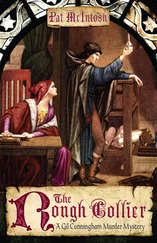1 ...8 9 10 12 13 14 ...23 No. 3.
Ever since the day in July, 1914, when one flaming editorial of his startled the world with its prophecy of the great war, Simonds has been the one preeminent writer on the war. He is quoted by newspapers the world over. The British Government has had his articles reprinted and distributed broadcast. The French Government has conferred upon him alone of all the Historians of the war the Cross of the Chevalier of the Legion of Honor. The Greek Government has made him an Officer of the Royal Order of the Redeemer. The King of Rumania has named him an Officer of the Royal Order of the Star of Rumania.
To no other writer did statesmen and generals so freely and frankly give information. No other military critic was so often quoted or so highly regarded as an authority. Multitudes based their opinions upon his judgment. His words governed the hopes and fears of millions.
So it is wonderful indeed that you can now have the whole story of the war in its final form written by him, with interesting special articles and illuminating sidelights by the greatest military, naval, and political leaders of America and Europe.
No. 4.
“My right has been driven in, my left has been driven in—consequently with all that is left of my center, I will now attack. ”—Foch.
That is the terse report that General Foch sent to Joffre at the crucial moment of the battle of the Marne. Told that his troops were worn out by the three days of continuous fighting—Too Tired?" he cried. "So are the Germans. Attack!" And attack they did in gallant style. He drew together all his exhausted divisions, all his reserves, and at the very moment when the enemy thought him routed, he smashed against the Prussian Guard in a violent, desperate assault, broke through its lines, crushed them and saved Paris!
How Much Do You Know of This Brilliant Leader?
Do you know that he is everywhere considered one of the greatest tacticians the world has known? Do you know that it was he who saved the channel ports of Calais and Dunkirk, and thus made possible the uninterrupted passage of men and supplies from England? Do you know that he was the man who took in hand the Italian defense just at the moment the Austro-German drive was at its height, and not only saved Venice, but changed almost certain defeat into glorious victory?
The History of the Great War
Gives a detailed account of these exploits as well as the whole story of the war. You read in it of the heroic stand, etc.
No. 5.
A Rude Awakening
(The illustration for this ad showed the Kaiser seated, with a huge firecracker labeled "A.E.F." just ready to go off behind him.)
The Kaiser has again and again assured his people they have nothing to fear from America—that all we shall ever be able to get past his U-boats is a few divisions of troops and some shiploads of supplies—that the tales of huge armies being formed, of mountains of munitions being manufactured, of flocks of airplanes and great fleets of ships, are just "American bluff."
What a Rude Awakening Is in Store for Him
Already our men are in the battle line by the hundred thousand; already our Navy has definitely checked the U-boat menace. Soon we shall have more than a million men in France and two million more are in training, and our shipbuilding alone will more than replace any future losses from submarines and mines.
But to definitely defeat the German Military Power, to win the war and make the world safe for the next hundred years, will take every bit of energy, every ounce of force that we can muster; and one of the first things necessary to get the most out of our enormous resources is to know all about the war—what led up to it, how it began, through it all. Where can you find all this? In, etc.
No. 6.
The Terrible Year
This, according to the German plan, was to be "The Terrible Year." The German High Command realized the necessity of getting a decision before the full American strength could make itself felt, so their strategy was to keep hammering the Allies until they had pounded their way through to Paris or the English Channel, and forced the Allies to accept a German peace.
But the Americans Turned the Tide
Against all the German expectations, America solved her transport problem so speedily, so successfully, that she was able to pour men into the fighting by the hundred thousand right at the crucial moment, turning German victory into overwhelming disaster.
Not only did Our Boys stop the German and hurl the Prussian hordes back over the Marne, but it was their energy and dash that enabled Foch to counterdrive so successfully, capturing thousands of prisoners and literally mountains of munitions.
The History of the World War gives you in vivid, pulsing narrative, etc.
No. 7.
The Coming of the Yanks
The battle of Chateau-Thiery was at its height. The Germans were pouring in such a hurricane of shot and shell, liquid fire and poison gas that the French Poilus, staunch veterans though they were, had begun to give way before that storm of destruction, and the never-ending hordes of on-rushing Huns.
Already the French Commander was preparing for a hurried retreat. Already he had ordered his hospital, with its hundreds of wounded, moved to the rear. The outlook was dark indeed—the road to Paris and the heart of France seemed open to the invader, when suddenly from over the hill behind the French lines came the sound of martial music—of thousands of fresh young voices singing—singing cheerily, confidently, exultantly—
The Yanks are coming,
The Yanks are coming,
The Yanks are coming over there!
And through the mist and battle smoke broke the long lines of Americans, their guns at the charge, their bayonets fixed, every man singing—exultant at the chance to get at the foe.
They went at the Germans like so many wild-cats. They killed them with bayonet, with rifle butt or with knife. They charged right into the face of machine guns—tore them apart—choked the gunners with bare hands!
In two short, glorious hours, the whole war was won. In two hours that will rank in history with Waterloo or Gettysburg, the Germans woke to the fact that they had not a chance—that they were fighting against something too big for them to meet—a spirit so high that no force of theirs could stop it.
The full story of Chateau Thierry has never been written. Not in any newspaper or magazine can you find the things our boys did that day. It is only around some confidential table where men high in the counsels of our Allies meet that the truth is freely told.
But now at last you can know the full story of that wonderful battle—of how our boys brought it home to the Germans that the end had come. It is a stupendous story. It will make every American heart beat faster. You can read it, just as it really happened, in
Simonds’ "History of the World War."
CHAPTER 5
MOTIVES THAT MAKE PEOPLE BUY
Table of Contents
Most people are like automobiles. They can be pushed or pulled along, or they can be moved to action by starting their own motive power from within. In either case, you must provide the fuel. And the only fuel that will start the sort of action you want from within is desire. Arousing that desire in your reader is known as the gentle art of exercising persuasion.
What is persuasion? Nothing but finding the motive that will impel your reader to do as you wish, then stirring it to the point where it is stronger than his inertia, or his economical tendencies.
To do that, you must show how he is going to benefit, and you can not do it unless you have the faculty of putting yourself in his place. Would you be richer, healthier, happier for having done the thing you ask? Would it help your standing with others? Would it enable you to do anything, write anything, say anything better than you could before? Is it something everyone should have? Would it gratify any passion? Would it enable you to help those you love? Would it prevent loss of money or the respect of others?
Читать дальше











